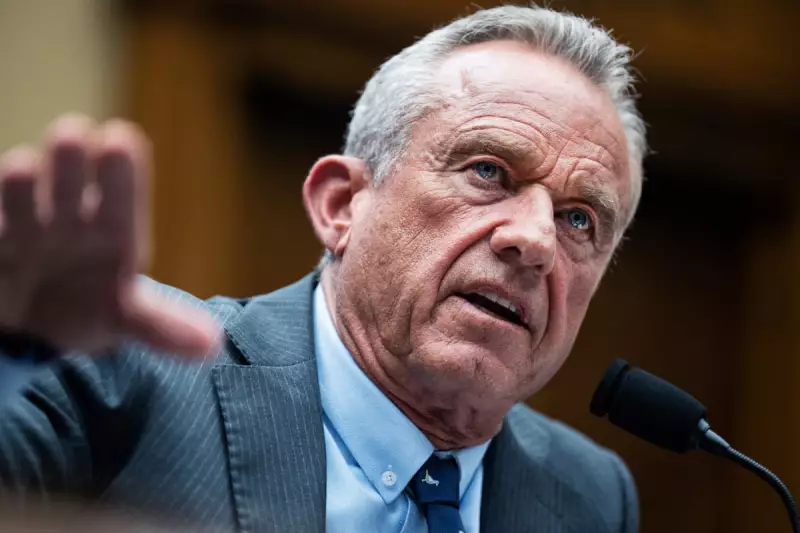
In a dramatic escalation of America's food policy wars, independent presidential candidate Robert F Kennedy Jr and his vice-presidential pick Maha Collis have launched a blistering attack on ultra-processed foods (UPFs), positioning themselves as champions of nutritional reform against what they describe as a "public health emergency."
The Anti-UPF Manifesto Unveiled
During a campaign rally that electrified health advocates, Collis delivered a fiery condemnation of the food industry, accusing major corporations of creating "food-like substances" that are driving America's chronic disease epidemic. Her passionate address marked one of the most substantive policy declarations from the Kennedy campaign to date.
"We are feeding our children poison and calling it food," Collis declared, capturing the campaign's uncompromising stance. "The science is clear - these ultra-processed products are making us sick, and the political establishment is looking the other way."
Direct Challenge to Trump's Deregulation Agenda
The Kennedy-Collis platform represents a fundamental challenge to Donald Trump's longstanding alliance with food industry giants. While specific policy details remain under development, insiders suggest the campaign is preparing measures that could include:
- Warning labels on UPF products
- Restrictions on marketing to children
- Tax incentives for whole food producers
- School nutrition programme overhauls
This positioning creates a clear ideological divide in an election where food policy has unexpectedly emerged as a battleground issue.
Scientific Backing and Political Calculations
The campaign's stance aligns with growing scientific consensus about the dangers of UPFs. Recent studies have linked heavy consumption to increased risks of obesity, heart disease, and cancer - evidence the Kennedy team is leveraging to bolster their case.
Political analysts note the strategic wisdom in targeting UPFs, an issue that transcends traditional political divides and resonates with parents concerned about their children's health. "This isn't left versus right - it's about whether we value corporate profits over public health," a campaign advisor revealed.
Industry Backlash and Voter Reception
Unsurprisingly, food industry representatives have pushed back vigorously. One trade association spokesperson dismissed the proposals as "nutritional nanny-statism that will drive up food costs for struggling families."
Yet early polling suggests the message is cutting through. Among suburban voters and health-conscious demographics, the anti-UPF platform is generating unexpected traction, potentially reshaping the electoral map in key battleground states.
As America moves toward election day, the food fight between Kennedy's nutritional reform and Trump's industry-friendly approach has become an unexpected but crucial front in the battle for the White House.





